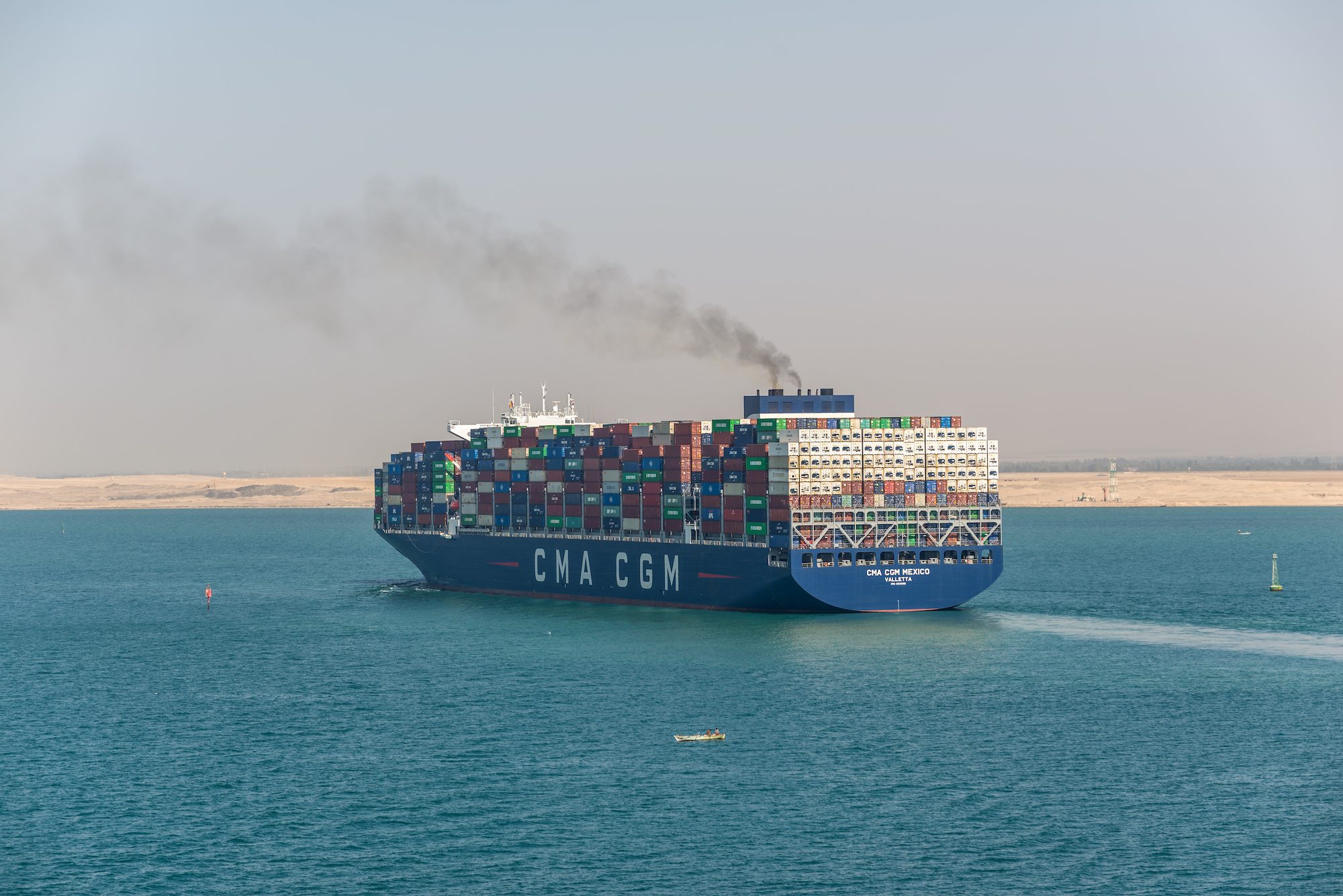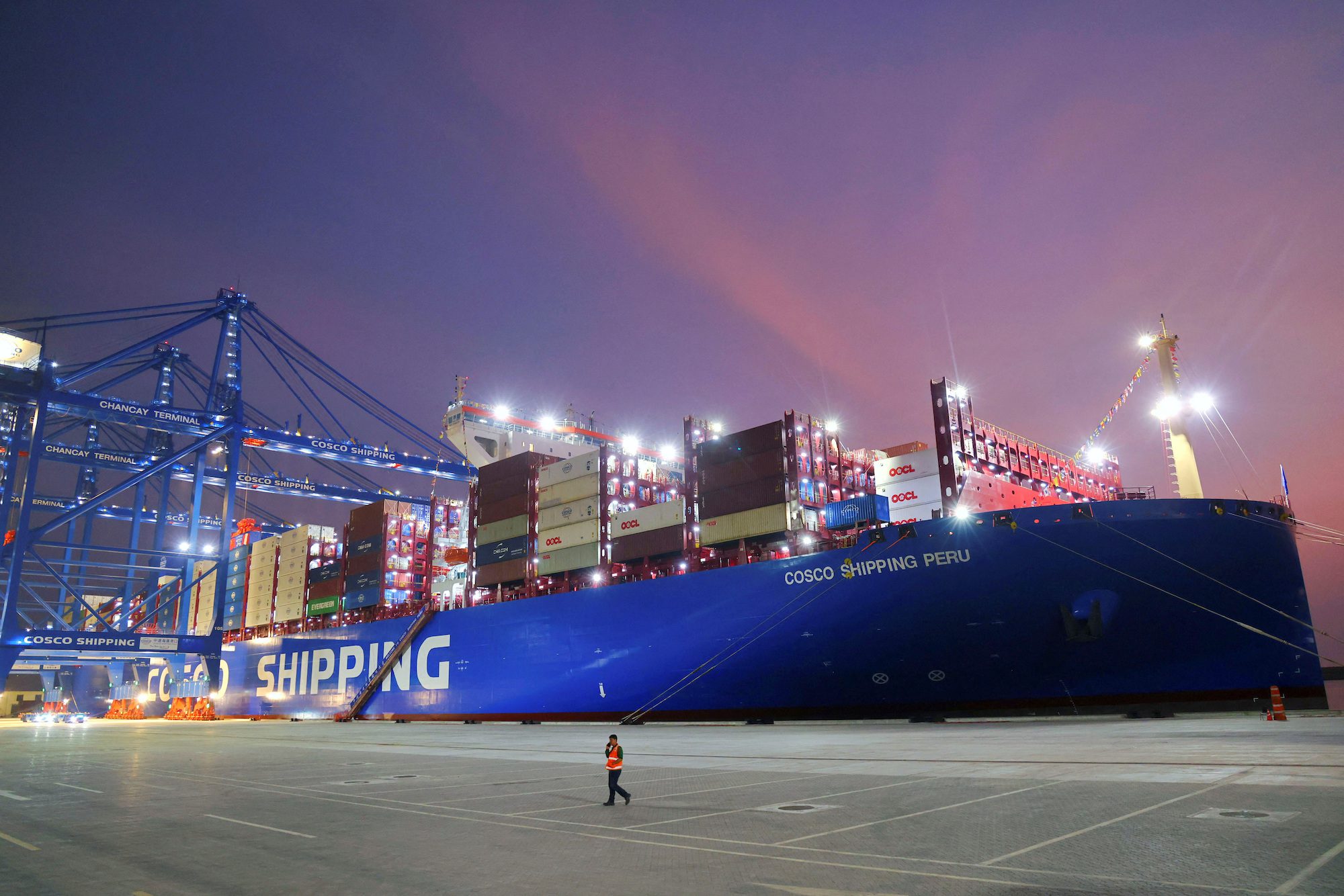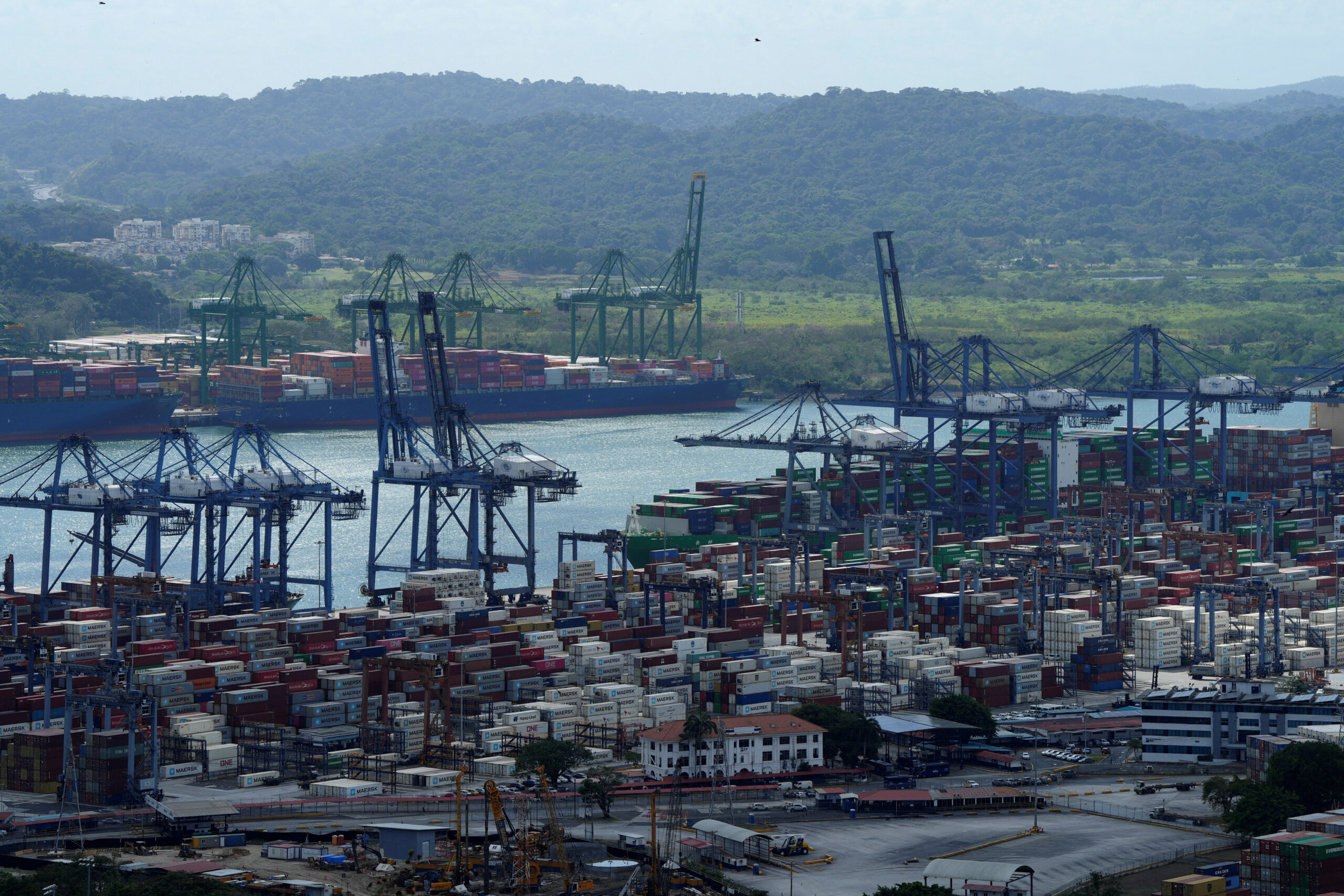(Bloomberg) —
Authorities in China have started to ask some overseas shipowners to report on their carbon emissions, highlighting greater scrutiny of the industry as the regulatory framework shifts.
The requests for figures on voyages that service local ports affect some tanker and container-ship owners, according to people familiar with the matter, who asked not to be identified. The move follows the EU’s recent adoption of a carbon levy on vessels, and could help in China’s expansion of its emissions-trading system to cover shipping. It’s unclear how many ports are involved.
Ocean-going vessels carry the vast majority of world trade, and any decision by China to force carriers to pay for emissions would be a major shift for the global maritime sector. The second-largest economy is the top crude importer, and its ports are among the biggest in terms of container throughput. In March, Beijing set up its first carbon-emissions management agency for the shipping sector in Shanghai to collect figures from China-flagged ships.
The Ministry of Transport said in response to Bloomberg’s queries that it had issued verbal notices to some ports, and that the requests were in response to the International Maritime Organization’s data-collection requirements.
China’s requests to overseas shipowners follow the introduction this year of a carbon levy by the European Union that requires vessels calling at the bloc’s ports to pay for carbon pollution, regardless of the flags they fly or where their owners are incorporated. The majority of ships are still powered by oil-derived fuels, which remain significantly cheaper than low-carbon alternatives.
“People will have to factor in the costs of these different carbon environments into their vessel economics, into their voyages, as well as for their customers,” said a spokesperson for Vitol Group, the largest independent oil trader.
International shipping accounted for about 2% of global energy-related carbon emissions in 2022, according to the International Energy Agency. The Paris-based group has cited “notable progress” toward decarbonizing the industry, including the EU’s initiatives, as well as efforts by shipbuilders in Asia to develop vessels that use alternative fuels.
Beijing — which has pledged to hit net-zero by 2060 — has been building out a carbon-trading system by expanding the number of industries that must pay for their pollution. The framework includes power utilities at present, and will be extended to cover steel, aluminum, and cement producers. Still, progress has been slow given low prices and trading volumes.
The IMO the shipping regulator, has been drafting rules to help the industry meet the goal of reducing emissions, possibly with a global standard, but progress has been slow. Shipowners remain concerned about the increasingly uneven regulatory landscape, the people said.
“Whether China is doing it purely to put pressure on the IMO because we need a global carbon-emissions regime, or they could be going forward with this to catch up to the EU, there is a strong business case for them to do it,” said Andrew Wilson, head of research at BRS Shipbrokers.
China is one of the world’s leading shipbuilders. Shipyards in the country have snapped up 70% of global orders for new vessels that run on cleaner fuels including LNG, methanol and liquefied ammonia in the first nine months of the year, state broadcaster China Central Television reported this week.
© 2024 Bloomberg L.P.
Editorial Standards · Corrections · About gCaptain
This article contains reporting from Bloomberg, published under license.

 Join The Club
Join The Club










